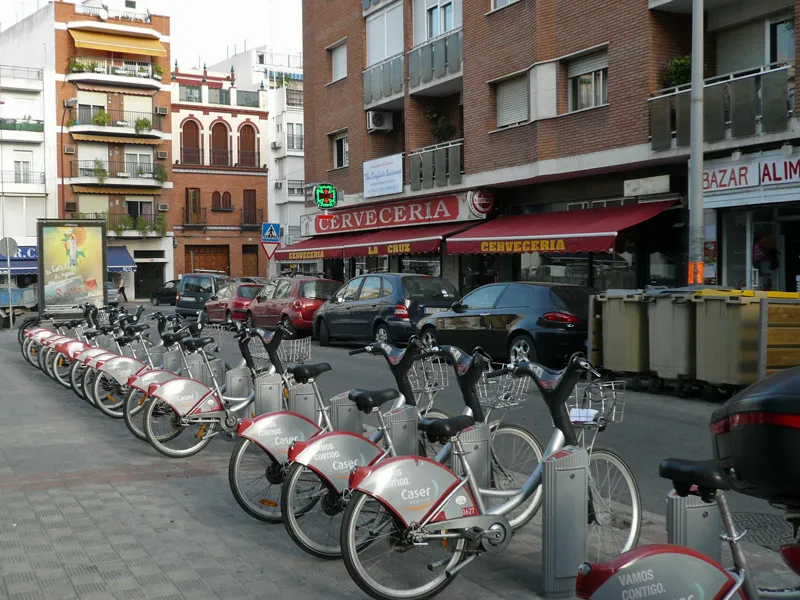Seville is to host an international conference in March marking its rapid ascendence to the position of Spain's 'cycling capital'. From a base of very little cycling in 2006, the city's residents now make 6.6 percent of all trips by bicycle.
This growth has been underpinned by the construction of 120km of cycle track between 2007 and 2010; virtually none existed before. Another major factor is Sevivi, a public bike hire scheme modelled on Paris's Velib which provides some 2,500 bikes at 250 locations.
Seville town council has monitored usage over the period of cycle path construction and says trips by bike have grown from 6,000 to 60,000 per day. Encouragingly, around 30 percent of those taking to two wheels said they would have gone by car previously .
The city's own study, based on 25 observation points across the cycling network, found that 60 percent of trips were commutes to work but an encouraging 40 percent were described as holiday trips. Male cyclists outnumbered women by three to one.
Seville's deputy mayor, Antonio Torrijos, is adamant that the progress so far is just a start for greater things to come. "We're still far from other admirable examples, from which we continue to learn," he said. "But we're confident that we've established the basis for Seville to become a member of the club of cycling-friendly cities, making for happier citizens, and there's no going back.'
One Spanish city in hot pursuit of Seville's 'cycling capital' crown is Barcelona. It has a public bike hire system dating from 2007 called Bicing as well as a 'green ring' bike path around the edge of the metropolitan area.
The European Cyclist Federation organised Velo-City conference is due to take place in Seville from March 23-25. It will look at how cycling can be encouraged, including topics such as health and education initiatives and efficiency of investment.


